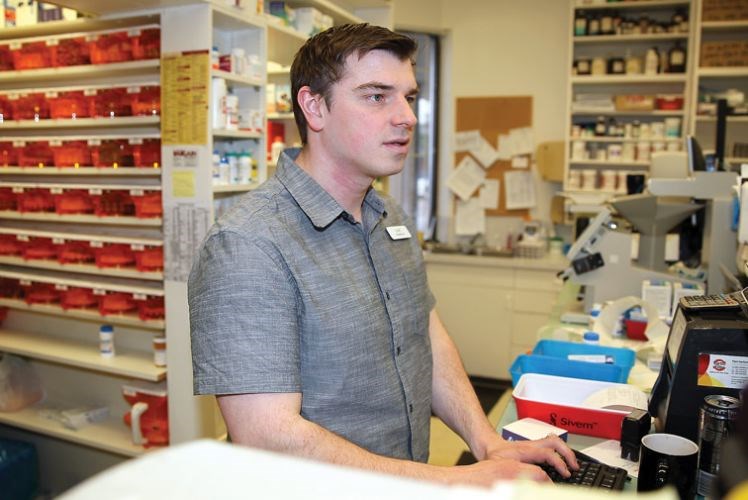Next time you are off to the pharmacy to pick up your medication, don't forget to drop off your saliva.
Soon, patients throughout British Columbia will be able to walk into their local pharmacy and take a test that will accurately predict whether the medication and dosage they are taking actually works, all determined by their DNA.
The B.C. based research project, Genomics for Precision Drug Therapy in the Community Pharmacy, is now entering its second phase and a pharmacy in Prince George is taking part.
"I was so excited to see an initiative that can tell us is if medications will actually help people beforehand," said Curt Fowkes, a pharmacist in Prince George.
The project is co-funded by Genome BC and the B.C. Pharmacy Association with research led by a team at the University of British Columbia's Sequencing and Bioinformatics Consortium.
Corey Nislow, UBC's lead researcher, is excited to bring the science to pharmacies all across B.C.
"I am so enthusiastic about this science which is mature and ready to be implemented. It's exciting because this is something that is a value to everyone, not just for those in big cities," said Nislow.
Testing a person's genome can predict how they will respond to certain medications , if medications are effective and if the dosage is correct.
This project is currently analyzing the DNA of mental health patients.
"For those taking mental health medications, we are avoiding giving them medications that don't work so this will prevent adverse responses and patients will not have to test so many medications before finding the one that works for them," said Nislow.
For Fowkes, this is scenario that is seen all too often.
"This is common for patients taking mental health medications and their issues are usually lifelong. They often feel like guinea pigs and try out a number of medications. If we can see what works beforehand, then this will benefit their lives sooner," Fowkes said.
Testing a person's genome is simple.
"The most important thing is that the patient provides their consent," said Nislow.
"Then they spit into a device that they are holding. The device is then sent away to the lab and in a few days, the genome is decoded and the patient will have their results."
The first phase of the project focused on pharmacist's capabilities in being able to provide the testing, no matter if they were in urban or rural communities.
It was concluded that all could participate.
The second phase, which will begin April 4, will focus on recruiting patients who are currently taking mental health medications as well as others who are commonly prescribed cardiovascular and pain medications.
Once results are in and DNA has been sequenced, the pharmacist will notify the patient and their health care provider.
"It's exciting. Your genetics can narrow down your choices. Your DNA never changes so next time you see your pharmacist, you are guaranteed a drug that is effective and with a dose that works," said Nislow.
"This is high concept, low tech. We are avoiding giving patients medications that just don't work."



